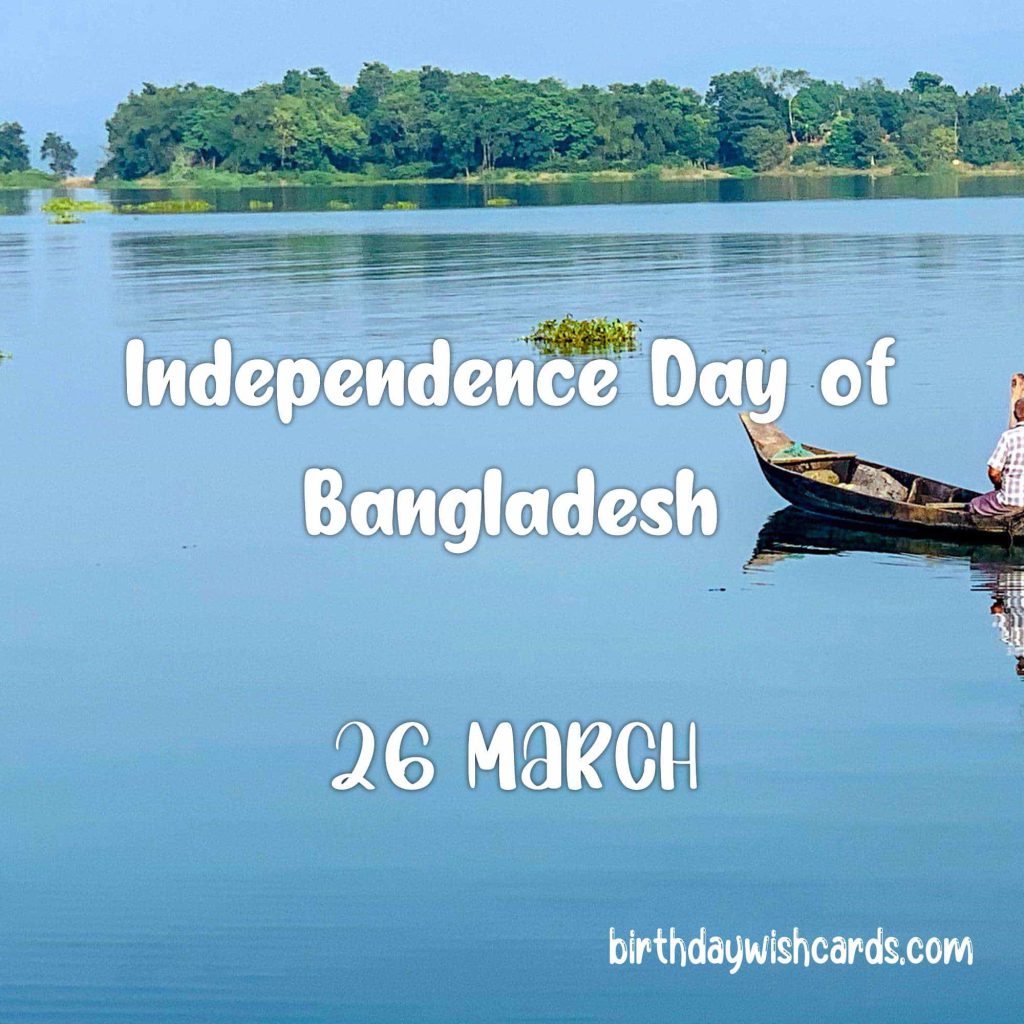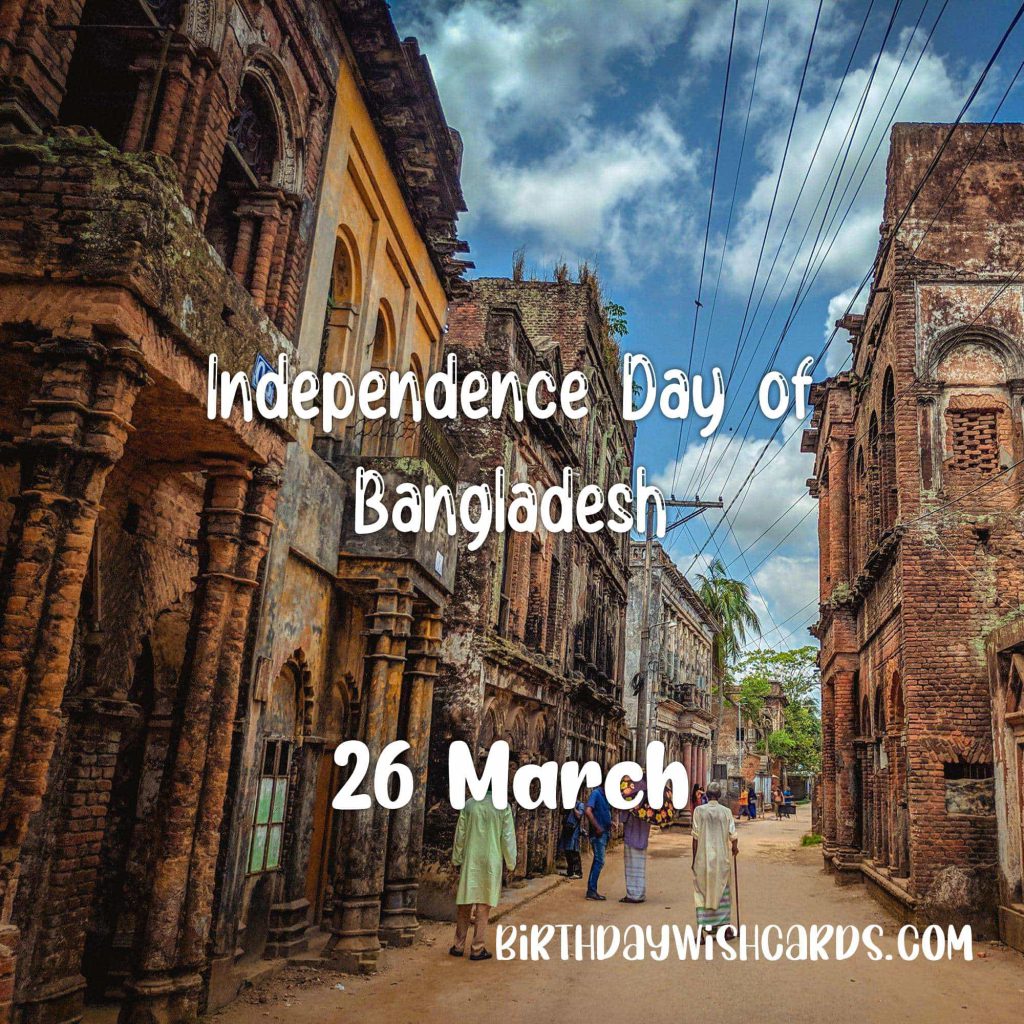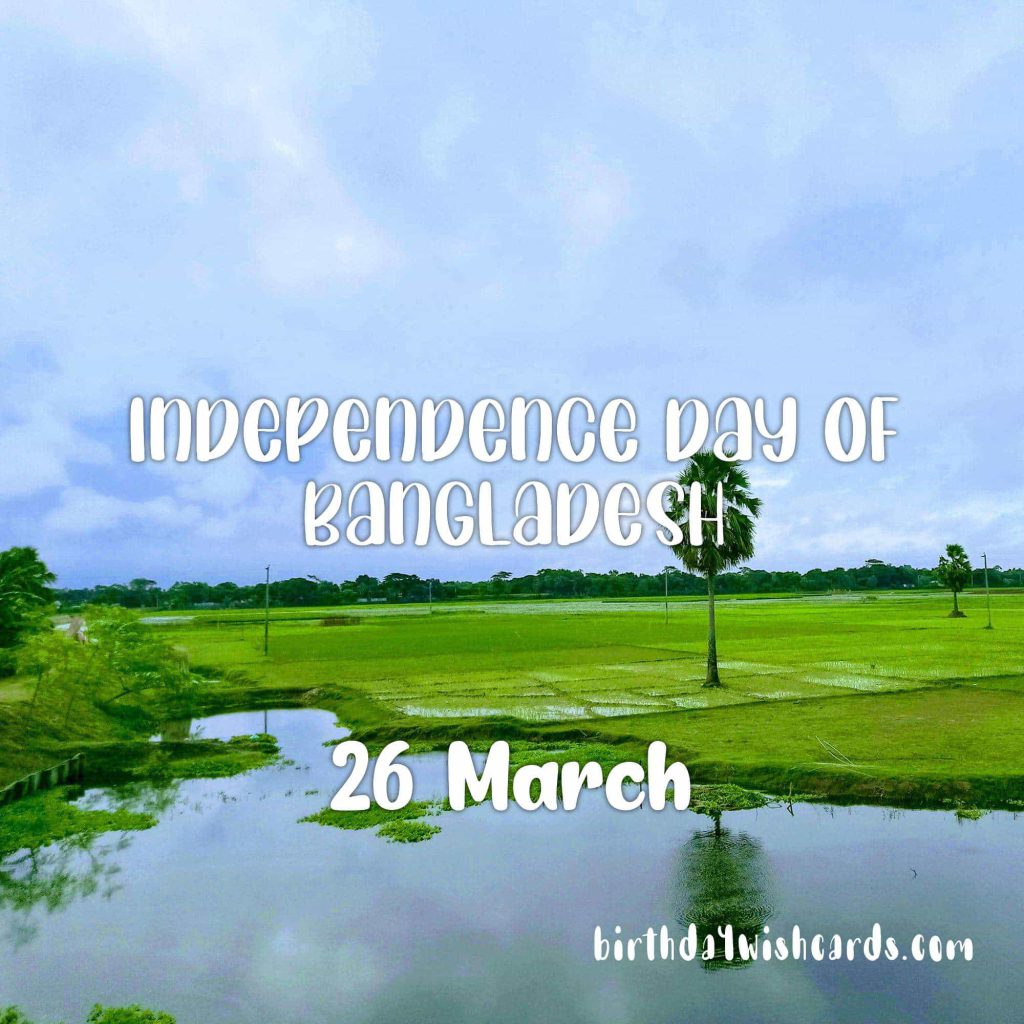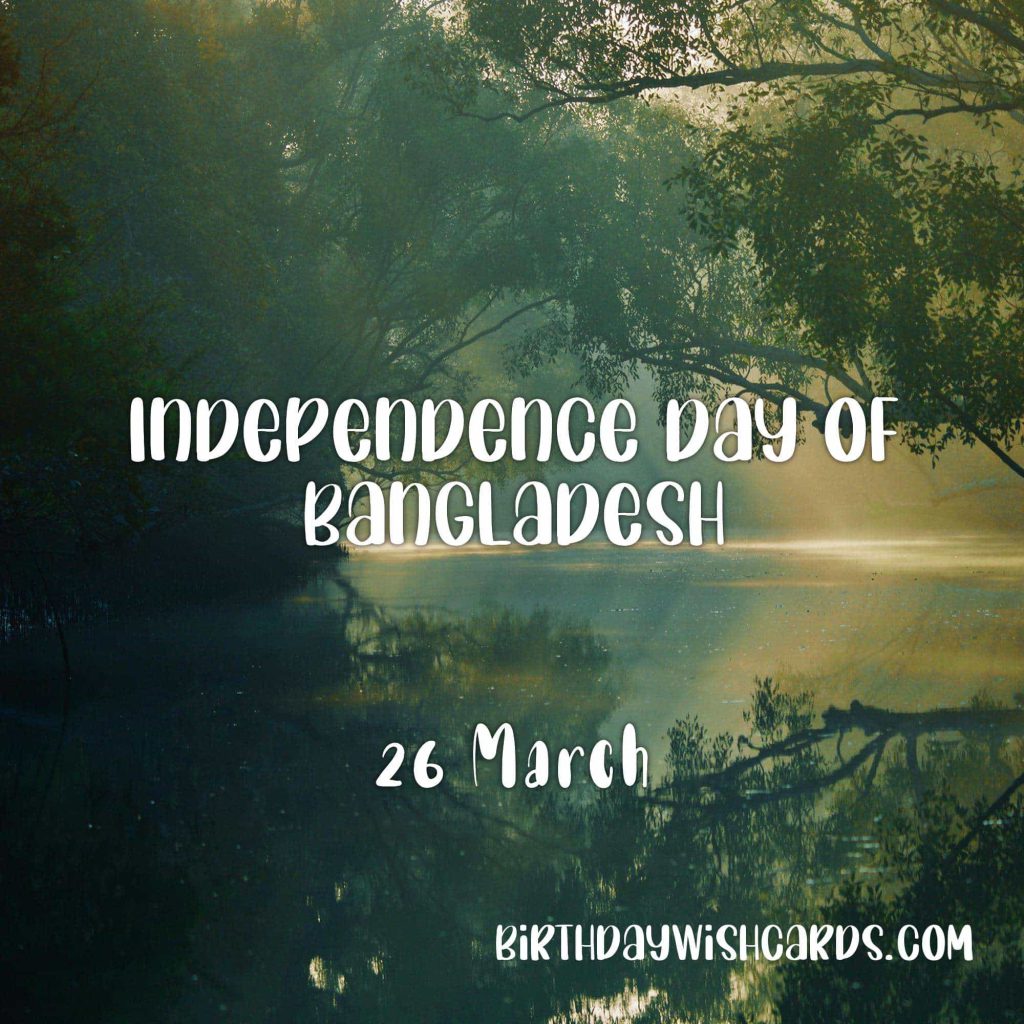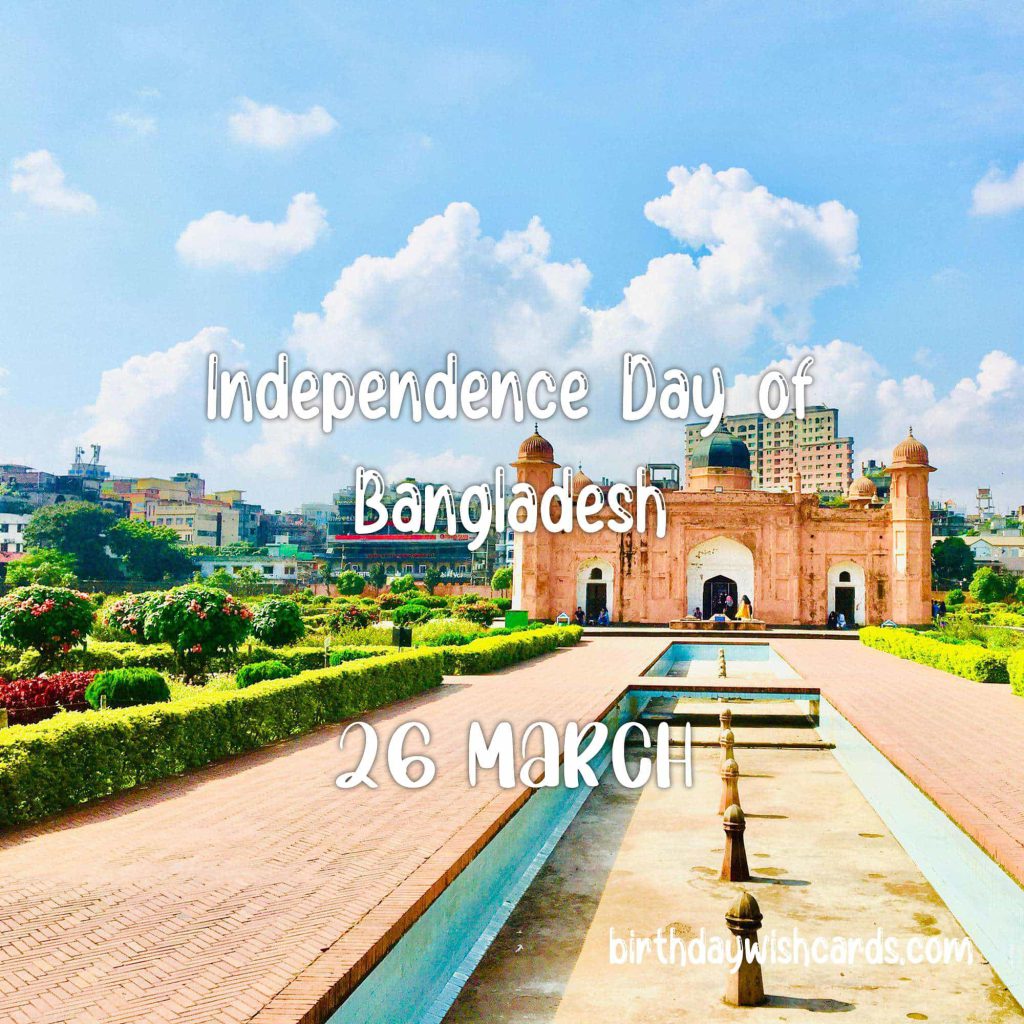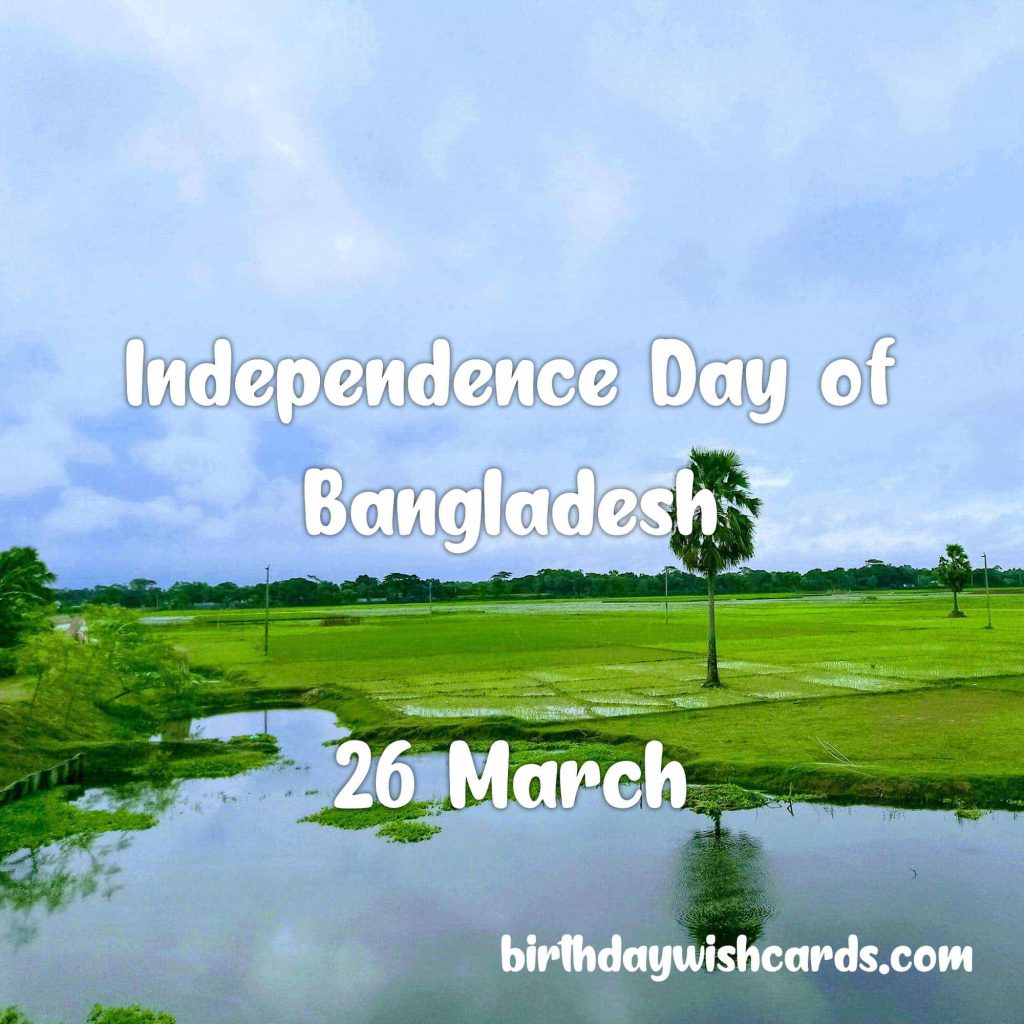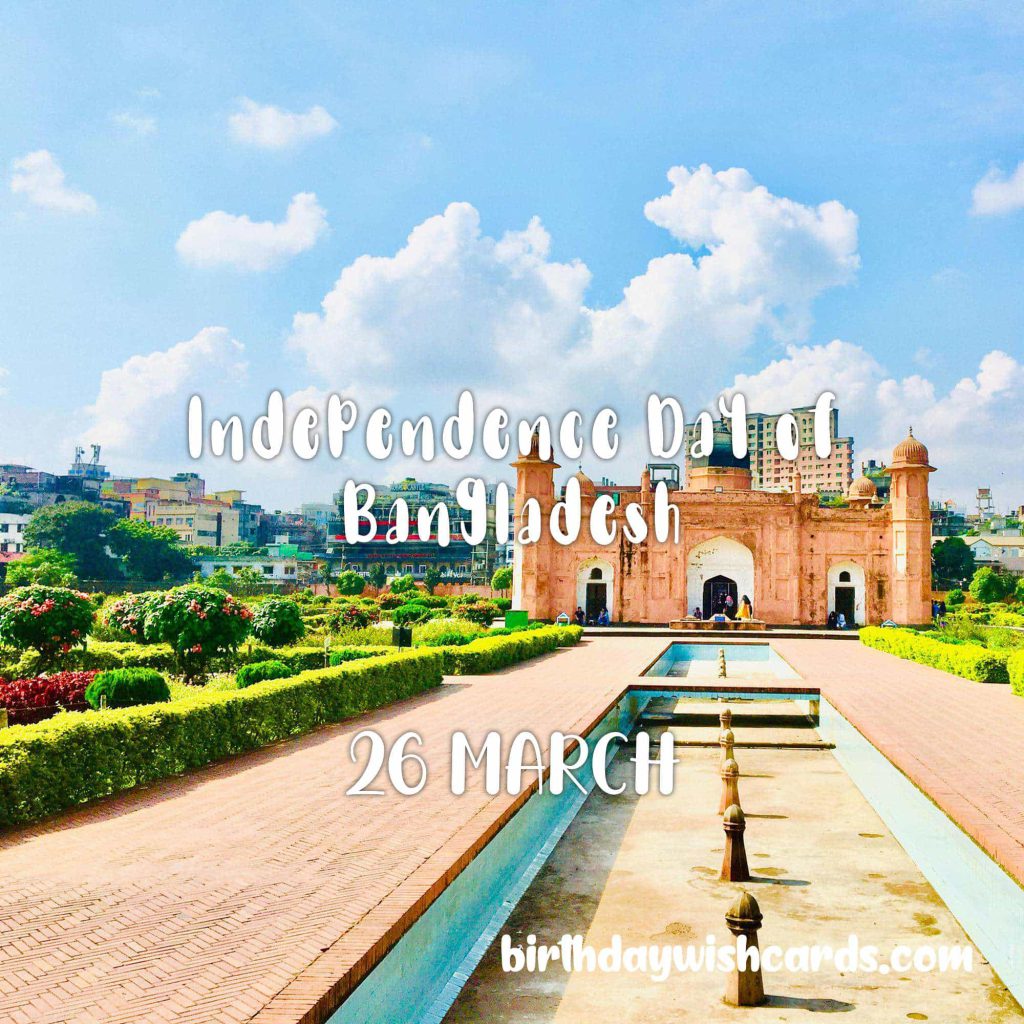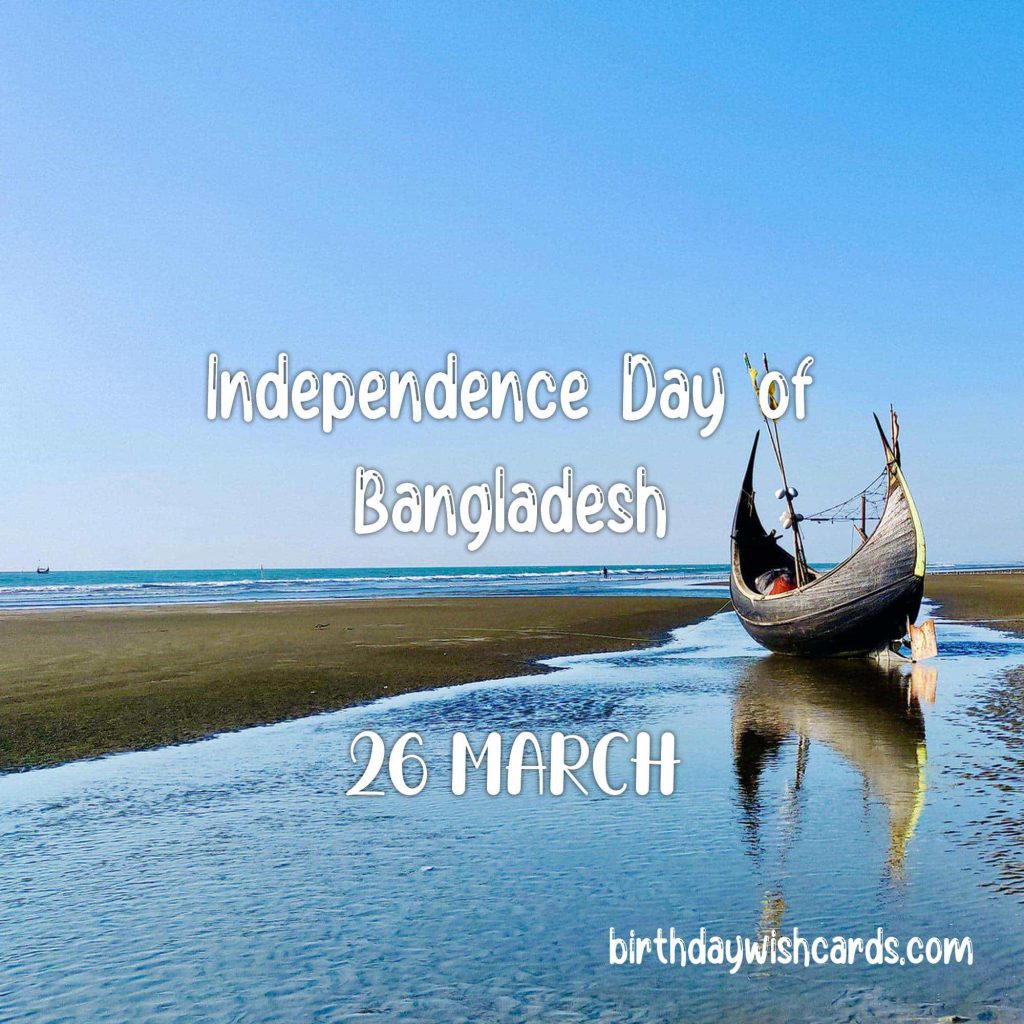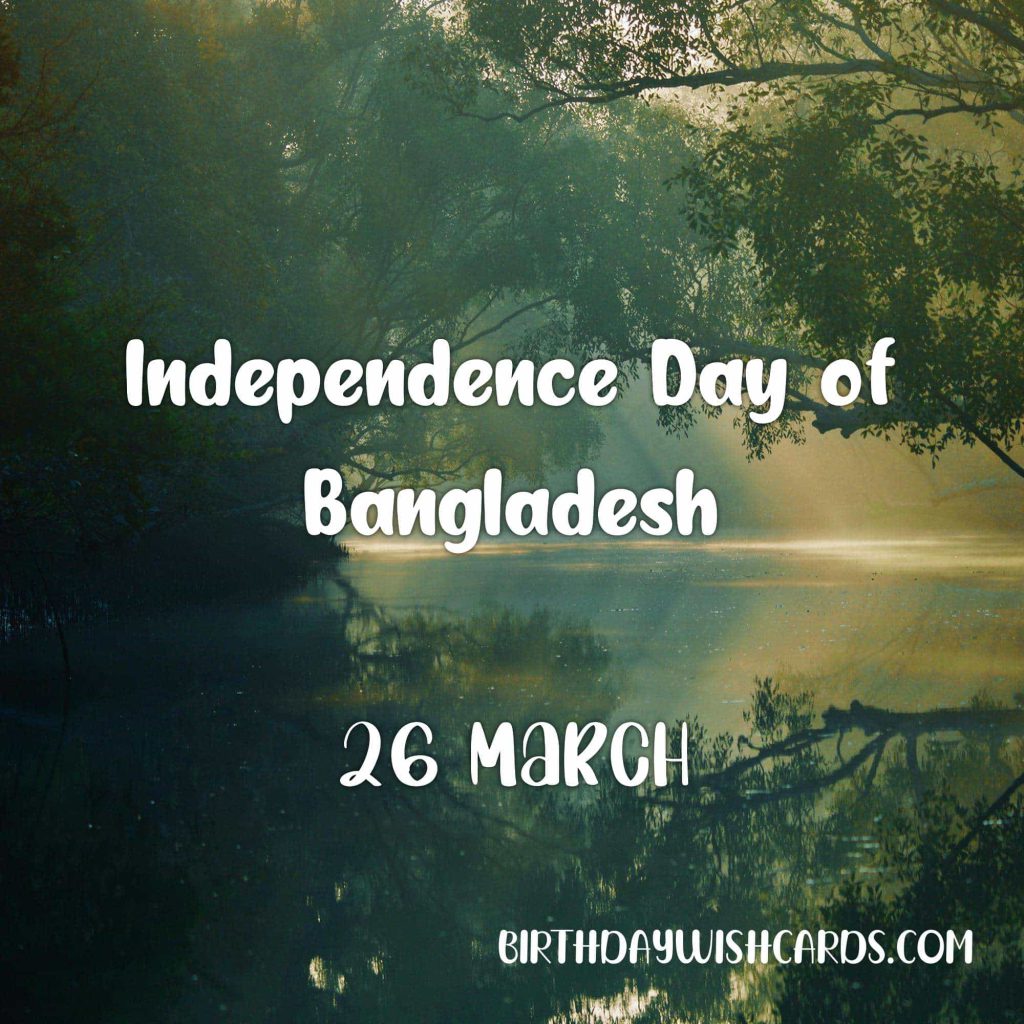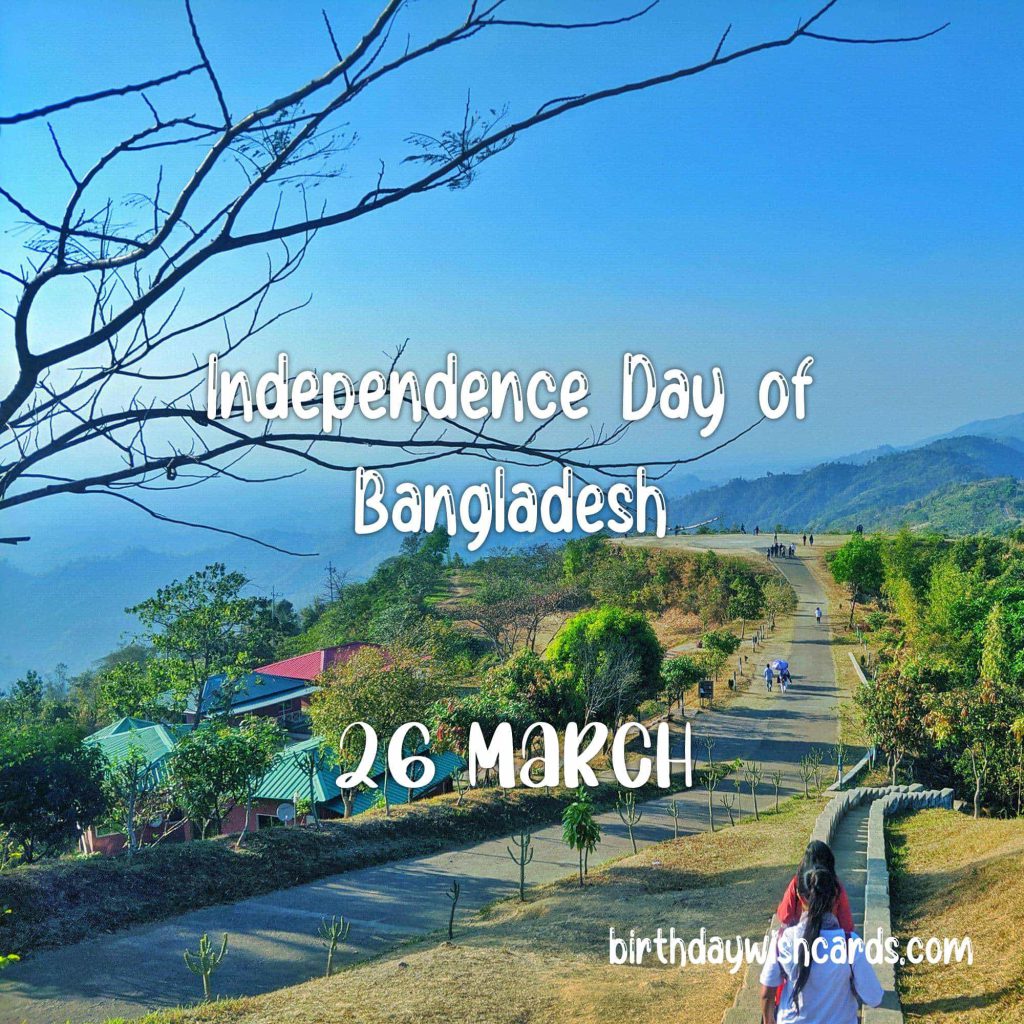
26 March: Independence Day of Bangladesh
Every year on 26 March, Bangladesh observes its Independence Day—a pivotal national holiday commemorating the country’s declaration of independence from Pakistan in the early hours of 26 March 1971. This day marks the beginning of Bangladesh’s struggle for sovereignty and the birth of the nation as a free, independent state.
Historical Background
The origins of Bangladesh’s Independence Day are rooted in the political tensions of 1970s Pakistan, then under the military rule of President Yahya Khan. In the 1970 Pakistani general election, the Awami League, led by Sheikh Mujibur Rahman, won a decisive majority in both national and provincial seats representing East Pakistan (now Bangladesh). Despite this clear mandate, Zulfikar Ali Bhutto and Yahya Khan refused to transfer power to Sheikh Mujib and the Awami League, igniting widespread unrest.
Negotiations between East and West Pakistani leaders quickly broke down amid mistrust and political maneuvering. The West Pakistani authorities, influenced by the earlier Agartala Conspiracy Case that accused Sheikh Mujib of separatism, remained suspicious of his intentions. As promises of political transition were repeatedly broken, the people of East Pakistan—including both Bangla-speaking Muslims and Hindus—rallied behind a growing movement for independence.
On 7 March 1971, Sheikh Mujibur Rahman delivered his historic speech at the Ramna Racecourse in Dhaka, calling for a non-cooperation movement against the West Pakistani regime. This speech is widely regarded as a turning point, galvanizing the Bengali population and setting the stage for the declaration of independence.
In response, West Pakistani authorities—primarily military personnel from West Pakistan—began detaining Bengali officers, non-commissioned officers, and soldiers. Forced disappearances and repression escalated as tensions mounted.
On the evening of 25 March 1971, even as the crisis deepened, Sheikh Mujib gave an interview to British journalist David Frost, advocating for peaceful negotiations and a united Pakistan. That same night, however, the Pakistan Army launched Operation Searchlight, a brutal military crackdown intended to suppress the independence movement. The army moved through Dhaka and other cities, using force to quell dissent and beginning a period of intense violence.
In the early hours of 26 March 1971, Sheikh Mujibur Rahman declared Bangladesh’s independence, formally launching the liberation struggle. The declaration was reaffirmed on 27 March by Major Ziaur Rahman, who read it on behalf of Sheikh Mujib. As a Bangladesh Defence Force (BDF) Sector Commander, Major Ziaur Rahman also established the independent Z Force brigade, initiating organized guerrilla resistance.
The war for independence began in Chittagong and quickly spread nationwide, with millions of Bangladeshis joining the fight against the Pakistan Army and its collaborators, including the paramilitary Razakars. The nine-month conflict was marked by fierce battles, civilian suffering, and widespread atrocities.
Estimates from the Awami League and Indian sources suggest that around three million people lost their lives during the Bangladesh War of Independence and the associated genocide. With critical military support from India, the Bangladesh Defence Force ultimately defeated the Pakistan Army. The war ended on 16 December 1971 with Pakistan’s surrender, leading to the establishment of Bangladesh as an independent nation.
Significance of Independence Day
Independence Day is observed with deep pride and patriotism throughout Bangladesh. It is a time to honor the sacrifices of the millions who fought for freedom and to pay tribute to the visionary leaders who dreamed of an independent Bangladesh. The day features a range of activities, including parades, speeches, cultural programs, and the ceremonial hoisting of the national flag.
Educational institutions, government offices, and private organizations observe the public holiday with events that highlight the historical importance of the liberation war. Independence Day also serves as a reminder of the democratic values, justice, and human rights upon which the nation was founded.
How Independence Day is Celebrated
- Flag Hoisting: The national flag of Bangladesh is raised across the country, at government buildings, public spaces, and private homes.
- Memorial Services: Wreaths are laid at the National Martyrs’ Memorial and other significant sites to honor those who sacrificed their lives for independence.
- Military Parades: The Bangladesh Armed Forces hold parades, showcasing their strength and commemorating the military’s role in achieving independence.
- Cultural Programs: Music, dance, and theatrical performances depicting the history and spirit of the independence movement are held nationwide.
- Educational Activities: Schools and universities organize seminars, exhibitions, and essay competitions focused on independence and national identity.
- Media Broadcasts: Television and radio channels air documentaries, interviews, and special programs about the liberation war and independence.
Legacy and Continuing Impact
The declaration of independence on 26 March 1971 not only transformed the geopolitical landscape of South Asia but also inspired movements for self-determination around the world. Bangladesh’s journey from a marginalized province to a sovereign state stands as a testament to the resilience and determination of its people.
Today, Bangladesh continues to uphold the spirit of independence by striving for economic growth, social progress, and regional cooperation. The nation’s enduring commitment to democracy and human rights remains rooted in the sacrifices made during the liberation war.
For those interested in exploring the detailed history and geopolitical context of Bangladesh’s independence, resources such as the Encyclopedia Britannica on the Bangladesh Liberation War and the History Channel’s overview of Bangladesh provide comprehensive insights.
Gallery of Independence Day Celebrations and Historical Moments
Visual storytelling plays a vital role in preserving the memory of Bangladesh’s independence struggle. Below is a collection of images commemorating Independence Day and key historical milestones:

